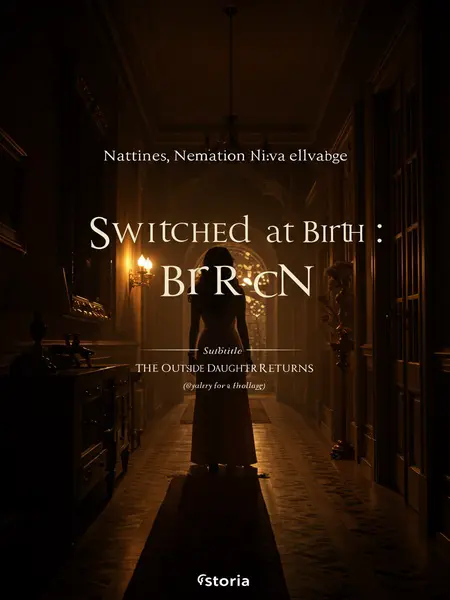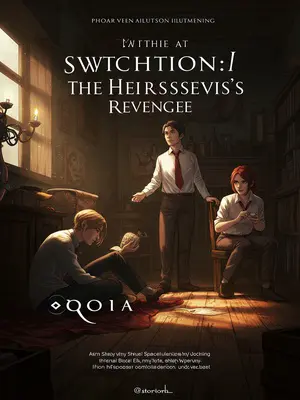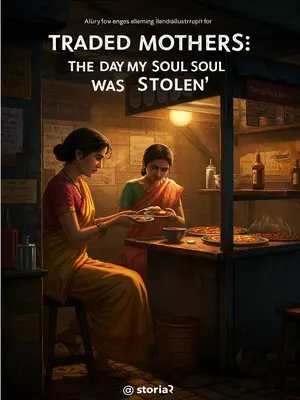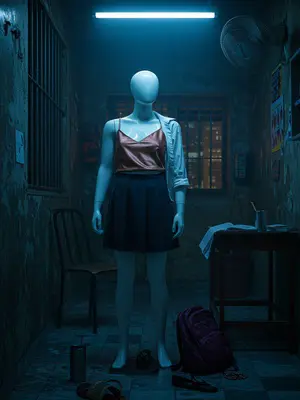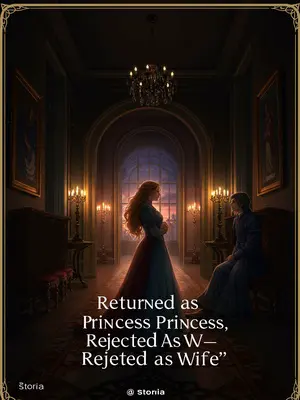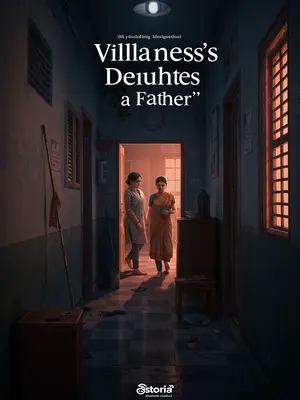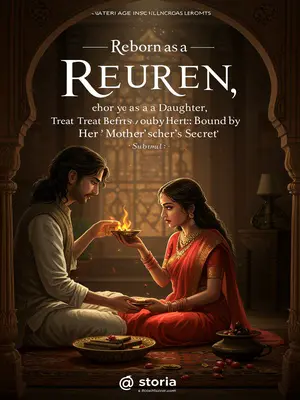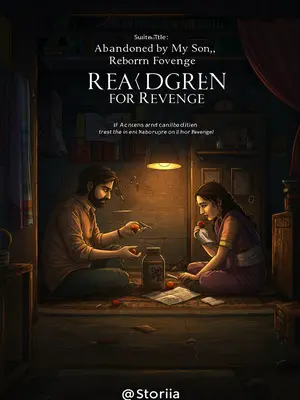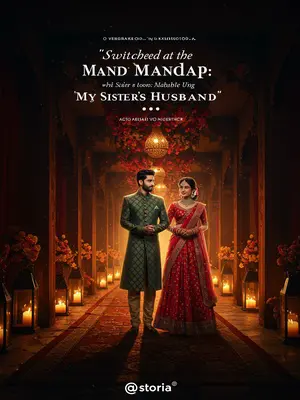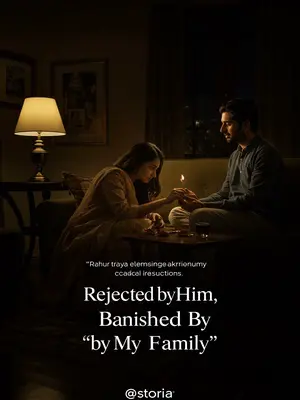Chapter 2: The Room Test
As soon as I spoke, the Mehra family froze like actors in a daily soap, expressions stuck mid-shock. Papa Mehra clutched his phone tighter, Maa Mehra’s mouth half-open, Kabir looking like a puppy caught chewing a chappal. Even Ananya, the so-called golden child, stared down, twisting her kurta’s edge.
I didn’t linger. Instead, I slipped my steel flask into my canvas bag, its clink against my tiffin box a reminder of the life I’d just left behind—no frills, no silver cutlery, just hard-earned dignity. I cut through the tension. "Which room is mine?" I asked, fingers tightening on my bag handle. The faint hum of the ceiling fan and the distant cry of the sabziwala outside grounded me; even in this fancy house, the world outside was always present.
The Mehra parents, still dazed, glanced instinctively towards the first floor.
It was a fleeting glance, but I caught it. Habits reveal priorities—where their eyes went, which rooms mattered. The hallway smelled of fresh paint and marigold flowers, maybe leftover from a recent puja or just an attempt to cover up the underlying awkwardness.
I picked up my battered VIP trolley bag, its sticker peeling, and started upstairs without waiting. Each thunk of the suitcase on marble steps echoed in the silent house. Someone gasped behind me, but I didn’t turn. Let them follow—I wasn’t begging for space in my own home.
The Mehra family scrambled after me, trailing like a reluctant baraat without the dhol.
They led me to two doors. "Have a look—see which one you like," Papa Mehra offered, voice painfully polite, as if forcing sweets on a guest he’d rather not entertain. Both doors shone with varnish, but only one felt truly lived in.
I frowned, serious. "Is this some emotional intelligence test?" I tapped my foot on the cool marble, asking the universe if all Indian families were this skilled at guilt-tripping daughters.
"Huh?" The family looked blank. Maa Mehra clutched her dupatta, Kabir blinked, only Ananya seemed to understand, biting her lip till it turned white.
The difference was obvious: one room was a lavish suite with AC humming, mogra-scented sheets, and a walk-in wardrobe; the other a cramped guest room, just a cot and a tired old table fan whirring amid the faint smell of naphthalene balls.
"Anyone with eyes can see which is better," I said bluntly, scanning each face. In India, the point isn’t always to choose—it’s to see who dares to choose, and how.
I added, "But it’s also obvious this suite wasn’t set up for me."
I walked in, absorbing the clues: glass bangles, kumkum bottles, a school trophy with Ananya’s name. Sunlight filtered through lace curtains, dust swirling, the whole room haunted by a presence that wasn’t mine.
"Someone lived here before, and that someone was a young girl."
Her old teddy bear sat on the bed. I ran my hand over its worn fur, feeling a mix of resentment and strange kinship—memories of what I’d lost, and the echo of a life that could have been mine. I caught Ananya’s eye, her red-rimmed gaze full of unspoken things.
If this was meant to be my room, why not clear out every trace? Instead, you set up a sad little guest room and made me pick—hoping I’d take the hint and choose less.
"Isn’t that right?"
Faces soured, Kabir’s confusion writ large. "Maa, Papa, is that really it?" he blurted, his voice cracking like a schoolboy about to get scolded. Ananya’s eyes shimmered, hope and guilt warring.
"Don’t talk nonsense, of course not," Papa and Maa Mehra replied, faces flushed with embarrassment. Maa fiddled with her gold chain, Papa coughed. Guilt flickered behind their denials, like the tremor of a diya about to go out.
Ananya rushed to explain, "It’s not like that. I wanted to give the room to Didi myself." Her voice was earnest, but it had the pressured edge of cousins splitting mithai at Diwali—forced generosity, impossible choices.
